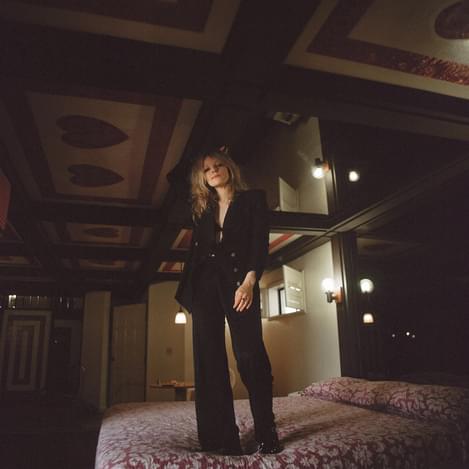Jessica Pratt's new LP is a testament to the power of simplicity
"Quiet Signs"

It’s hypnotic. Gorgeous. And it’s soon obvious this is the blueprint the Los Angeles songwriter uses for the rest of Quiet Signs. She’s never been one to over-complicate things when it comes to songwriting, here repeating phrases, both musical and lyrical, so that you’re caught up in a never-ending swirl of hues, tints and tone. You get the impression that Pratt herself is fully caught up in the delicate beauty of each moment, happily roving, for ending it would mean having to rip herself out of a world that’s thoroughly nourishing and fulfilling and harmonious.
The making of Quiet Signs was the first time that Pratt’s spent time recording in a studio. Her previous albums all came together within the comfort of her bedroom, putting songs down onto a vintage tape machine the moment she’d written them. It’s a creative process that’s worked well for her. Pratt’s a folk singer after all, and folk has historically been a no-frills sort of music. A voice and a guitar, and you’ve got all the tools you need. Generally speaking, that is; you’ve got to have the natural feel for it too, and it’s something Pratt has flowing through her veins in abundance. It’s what gives her music such an intimacy, such a closeness, such a tenderness, things that can be easily lost submerging yourself in a digital studio environment if not careful. But it’s something she was wary of, not to lose the sound that has so innately become her own, not to clean it up and polish it too much. To still capture the spark as soon as it’s been ignited.
All through Quiet Signs – especially so on the opener – there’s an audible hiss that the music is enveloped in. It acts as a connector to a bygone era, to a world where times were simpler, a world that’s unfamiliar yet completely comforting and alluring. At the centre of this world lies Pratt’s dreamy tapestry of melodies, gently and delicately fingerpicked. With the help of multi-instrumentalist Matthew McDermott, her usually relatively bare canvass has been given beautiful flourishes and texture this time round. Synths peer out faintly from the tranquil backgrounds of “This Time Around” and “Silent Song”. Pianos tinker and flutes flutter through “Here My Love” and “Poly Blue”, their impression only felt through their sudden vanishing – like a subtle, shimmering aura, suffusing Pratt’s world with a flash of vibrant colour.
And then there’s her voice: cooing, lilting, purring, absolutely remarkable and peculiar, totally otherworldly. It’s completely her own. Most of the time what she’s saying is rather abstract, but Pratt uses her voice as an instrument to convey feeling rather than communicate specific meaning. Not only is the incoherence welcomed, it’s essential, in fact; were you able to make out every word, the enchantment of the reverie just wouldn’t be the same. Any you do make out almost act as a snap back to reality – from a faraway place that’s utterly soothing, tranquil, and serene, a place that makes you feel like no other.
While Jessica Pratt’s already-absorbing sound has been made fuller and richer on Quiet Signs, there’s still a charming simplicity to it all. And what do they say about simplicity? There’s a certain beauty in it. Here it’s ethereal and exquisite, with a magic that weaves its way into your being and transforms the world around you.
Get the Best Fit take on the week in music direct to your inbox every Friday

Tunde Adebimpe
Thee Black Boltz

Julien Baker & TORRES
Send A Prayer My Way

Bon Iver
SABLE, fABLE





